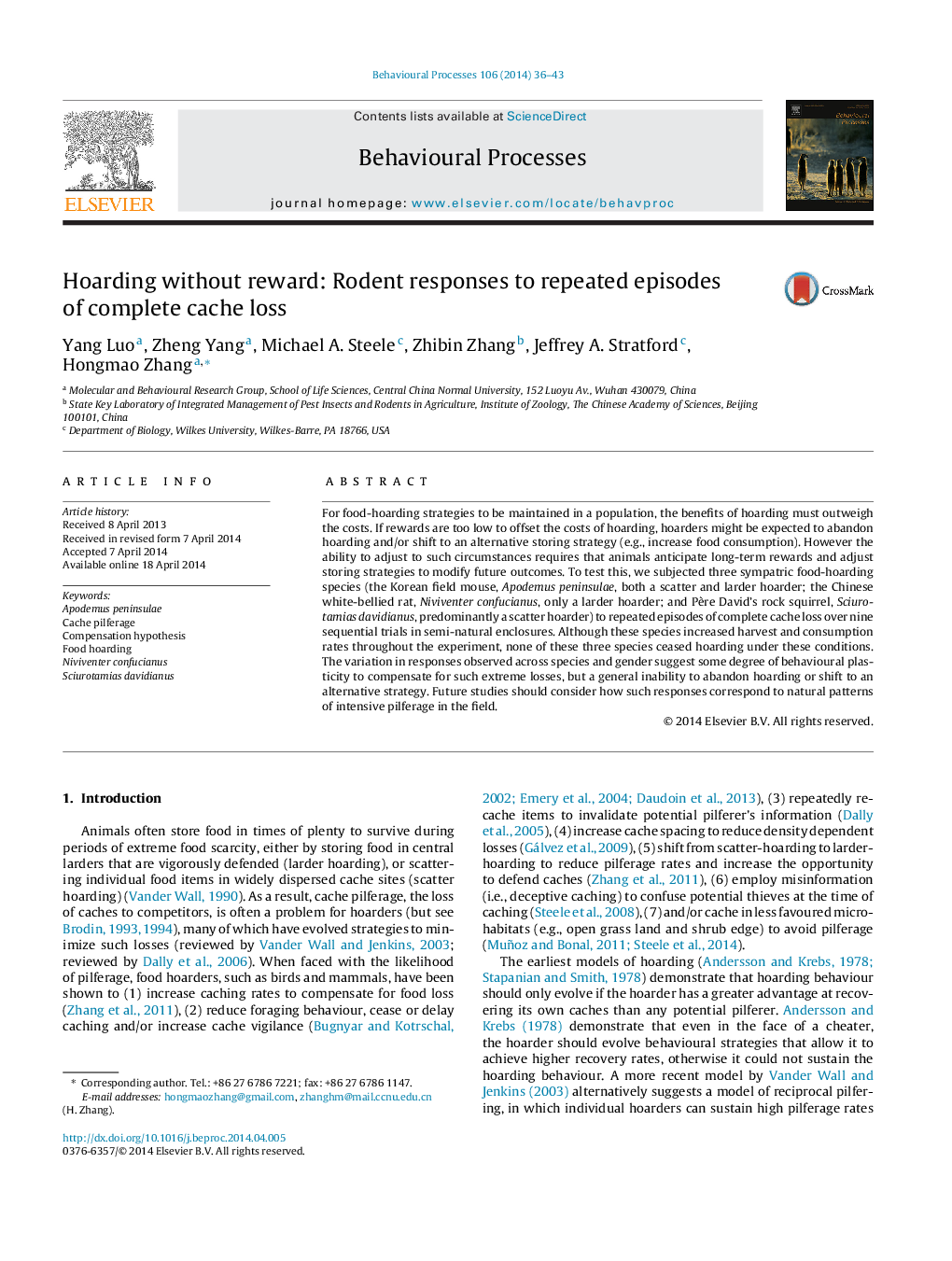| کد مقاله | کد نشریه | سال انتشار | مقاله انگلیسی | نسخه تمام متن |
|---|---|---|---|---|
| 2426655 | 1553173 | 2014 | 8 صفحه PDF | دانلود رایگان |
• Three sympatric rodent species were subjected to repeated loss of hoarded food.
• All species increased harvest and consumption rates.
• Rodents modified their hoarding strategies following complete cache loss, but never abandoned hoarding.
For food-hoarding strategies to be maintained in a population, the benefits of hoarding must outweigh the costs. If rewards are too low to offset the costs of hoarding, hoarders might be expected to abandon hoarding and/or shift to an alternative storing strategy (e.g., increase food consumption). However the ability to adjust to such circumstances requires that animals anticipate long-term rewards and adjust storing strategies to modify future outcomes. To test this, we subjected three sympatric food-hoarding species (the Korean field mouse, Apodemus peninsulae, both a scatter and larder hoarder; the Chinese white-bellied rat, Niviventer confucianus, only a larder hoarder; and Père David's rock squirrel, Sciurotamias davidianus, predominantly a scatter hoarder) to repeated episodes of complete cache loss over nine sequential trials in semi-natural enclosures. Although these species increased harvest and consumption rates throughout the experiment, none of these three species ceased hoarding under these conditions. The variation in responses observed across species and gender suggest some degree of behavioural plasticity to compensate for such extreme losses, but a general inability to abandon hoarding or shift to an alternative strategy. Future studies should consider how such responses correspond to natural patterns of intensive pilferage in the field.
Journal: Behavioural Processes - Volume 106, July 2014, Pages 36–43
